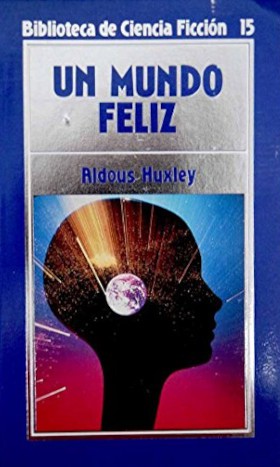Lars a publié une critique de Brave New World par Aldous Huxley
None
5 étoiles
4.6

Livre broché, 190 pages
Langue : Spanish
Publié 30 novembre 1985 par Orbis.
Originally published in 1932, this outstanding work of literature is more crucial and relevant today than ever before. Cloning, feel-good drugs, antiaging programs, and total social control through politics, programming, and media -- has Aldous Huxley accurately predicted our future? With a storyteller's genius, he weaves these ethical controversies in a compelling narrative that dawns in the year 632 AF (After Ford, the deity). When Lenina and Bernard visit a savage reservation, we experience how Utopia can destroy humanity. A powerful work of speculative fiction that has enthralled and terrified readers for generations, Brave New World is both a warning to be heeded and thought-provoking yet satisfying entertainment. - Container.
Originally published in 1932, this outstanding work of literature is more crucial and relevant today than ever before. Cloning, feel-good drugs, antiaging programs, and total social control through politics, programming, and media -- has Aldous Huxley accurately predicted our future? With a storyteller's genius, he weaves these ethical controversies in a compelling narrative that dawns in the year 632 AF (After Ford, the deity). When Lenina and Bernard visit a savage reservation, we experience how Utopia can destroy humanity. A powerful work of speculative fiction that has enthralled and terrified readers for generations, Brave New World is both a warning to be heeded and thought-provoking yet satisfying entertainment. - Container.
4.6
Read in and for English class in school. Would likely not have read it on an other occasion, although the themes and things discussed are thought provoking, I didn't really enjoy the book.
Read in and for English class in school. Would likely not have read it on an other occasion, although the themes and things discussed are thought provoking, I didn't really enjoy the book.
I guess it might be the point of the book, but I couldn't feel that any character was real, everything felt stereotypical; while at the same time that "prediction" of the future does not seem plausible to me.
And I repeat, it might be the point of the book, so, if that is the case, then great job. I just did not enjoy it or gained any interesting insight.
I guess it might be the point of the book, but I couldn't feel that any character was real, everything felt stereotypical; while at the same time that "prediction" of the future does not seem plausible to me.
And I repeat, it might be the point of the book, so, if that is the case, then great job. I just did not enjoy it or gained any interesting insight.
Read this immediately afte reading the Orwell classic, 1984. I admit, I struggled reading this book. The method of story telling, with the switching of character perspective was difficult to follow. The idea of the book became far more clearer as the book progressed and became clear especially towards the end.
However the ideas presented in the book and their demonstration was thought provoking.
Read this immediately afte reading the Orwell classic, 1984. I admit, I struggled reading this book. The method of story telling, with the switching of character perspective was difficult to follow. The idea of the book became far more clearer as the book progressed and became clear especially towards the end.
However the ideas presented in the book and their demonstration was thought provoking.
There is much to be learned from reading this book and it is easy to forget that it was written early in the last century, not this one. Sadly, the warnings Huxley offers about what society was becoming were largely ignored and we've come to a society that so closely mirrors his "civilization" that it could have been a metaphor about our current state of affairs written by a contemporary author.
It is a very short novel but full of warnings and lessons that are as applicable, or even more so, today as they were in 1930. It is a lesson in mass manipulation by the media and big pharma. It is a lesson in treating people ultimately as mere resource rather than persons. And it is a lesson in extremes, extreme pain v. extreme pleasure and the wrongheadedness in submitting to either.
There is much to be learned from reading this book and it is easy to forget that it was written early in the last century, not this one. Sadly, the warnings Huxley offers about what society was becoming were largely ignored and we've come to a society that so closely mirrors his "civilization" that it could have been a metaphor about our current state of affairs written by a contemporary author.
It is a very short novel but full of warnings and lessons that are as applicable, or even more so, today as they were in 1930. It is a lesson in mass manipulation by the media and big pharma. It is a lesson in treating people ultimately as mere resource rather than persons. And it is a lesson in extremes, extreme pain v. extreme pleasure and the wrongheadedness in submitting to either.
